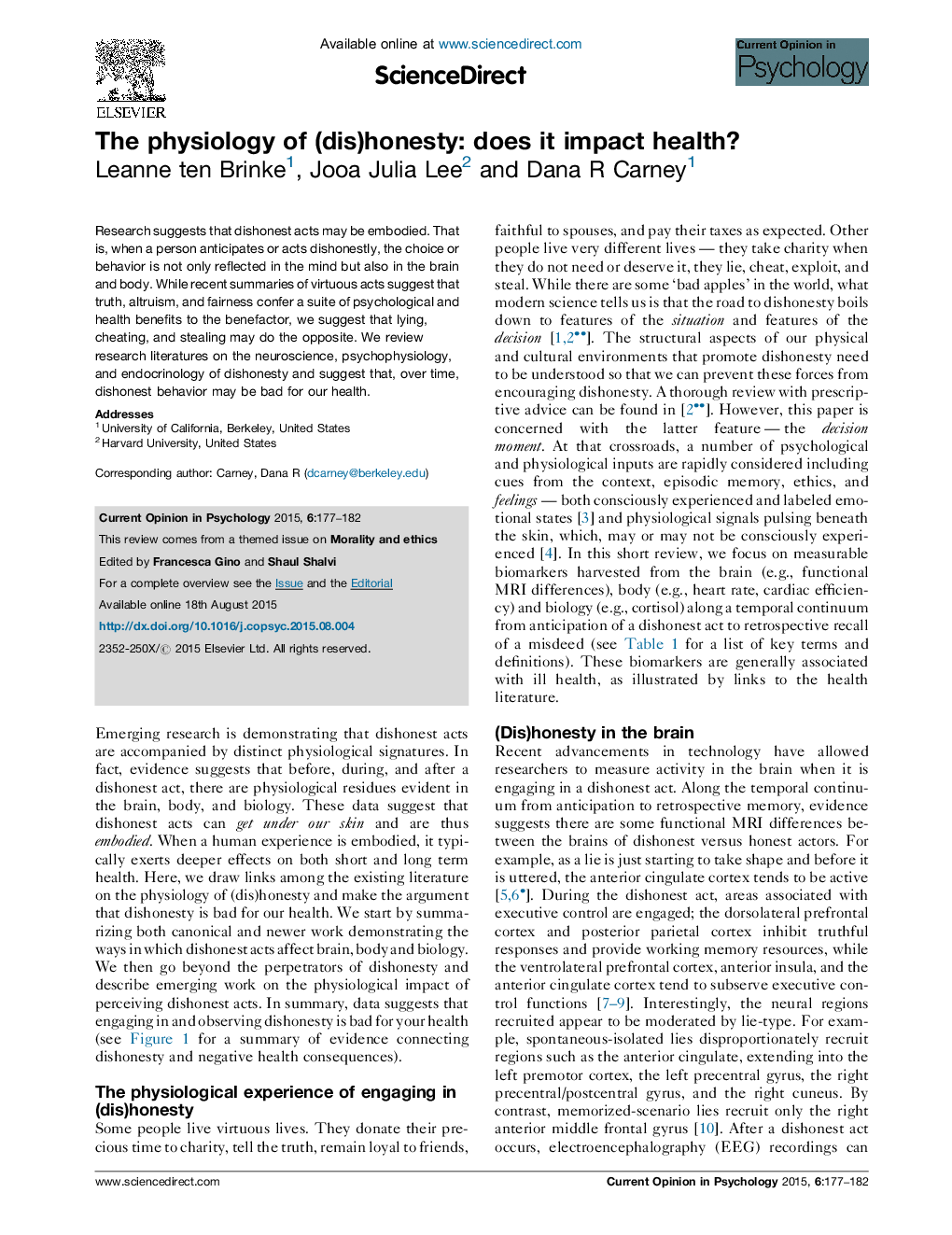| کد مقاله | کد نشریه | سال انتشار | مقاله انگلیسی | نسخه تمام متن |
|---|---|---|---|---|
| 879440 | 1471323 | 2015 | 6 صفحه PDF | دانلود رایگان |
• Dishonesty recruits executive control areas of the brain.
• Dishonesty is positively associated with testosterone, and cortisol reactivity.
• Dishonesty increases arousal, blood pressure, and heart rate.
• Innocent observers of dishonesty may experience similar physiological effects.
• These physiological effects can have negative health outcomes.
Research suggests that dishonest acts may be embodied. That is, when a person anticipates or acts dishonestly, the choice or behavior is not only reflected in the mind but also in the brain and body. While recent summaries of virtuous acts suggest that truth, altruism, and fairness confer a suite of psychological and health benefits to the benefactor, we suggest that lying, cheating, and stealing may do the opposite. We review research literatures on the neuroscience, psychophysiology, and endocrinology of dishonesty and suggest that, over time, dishonest behavior may be bad for our health.
Journal: Current Opinion in Psychology - Volume 6, December 2015, Pages 177–182
